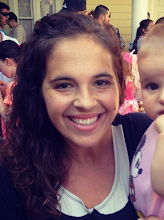Both Il castello dei destini incrociati (Calvino) and Il sistema periodico (Levi) are re-reads, as I prepare to write my dissertation proposal (any references I make will be to the English translations, though I read them in the Italian original)...So, why blog about them together? Symbols, I say.

Symbols play a prominent role in both of these books; in the case of Calvino's tale, different travelers find themselves in an inn (that used to be a castle, or a castle that used to be an inn), and all have been struck silent. They take to communicating their stories by using a deck of Tarot cards, and the different people sitting around the table must interpret the stories as appropriately as possible. As the first person begins his tale, the narrator comments, "we thought we understood that, with that card, he wanted to say 'I' and that he was preparing to tell his story," suggesting that the entirety of the novel is full of conjectures and personal interpretations, which do not necessarily correlate to the actual stories being told (emphasis mine). As one traveler finishes his story, another story begins and may intersect with previous stories, until all the spaces are full. The resulting layout hearkens to the intersection of the individual and universal, the personal interpretation of others and one's personal projection into the Other's narrative. The stories can be read in a linear fashion, and if the protagonists of each tale are the cards on the outside edges, the various stories intersect in very clear ways.
The second part of the work, The Tavern of Crossed Destinies, leaves the reader with a much less organized layout; the cards and their stories are pulled at random and without a logical pattern. The narrator finds himself with three cards, "the Knight of Swords, the Hermit and the Juggler...as I have imagined myself from time to time...the moment has come to admit that only tarot number one honestly depicts what I have succeeded in being: a juggler, or conjurer, who arranges on a stand at a fair a certain number of objects and, shifting them, connecting them, interchanging them, achieves a certain number of effects." If the narrator is read as a version of Calvino himself, then this is the moment Calvino discusses how he views himself as a writer. Is writing simply a way of interpreting various symbols and presenting them in various fashions, depending on the desired outcome or reception? What bearing do the symbols have on individual lives?

Primo Levi uses different symbols - the periodic table of elements - in order to incorporate tangible elements into a less-tangible reality. The intersection of the chemical elements with the narrative story is representative of Levi's personal life. The chemical elements represent Levi's career as a chemist, and serve as a guide for Levi to navigate his lift. The narrative elements are composed of different types of stories - anecdotes, fantastic tales, histories, etc - and it is through these different tales and elements that Levi projects an image of himself that is equally multifaceted. Interesting, however, is the fact that Levi almost entirely leaves out the time period in which he was in Auschwitz, commenting that "I, a chemist, engaged here in writing my stories about chemistry, have lived a different season, has been narrated elsewhere." Though the story, "Cerium," in which this appears is related to Levi's survival during his time in Auschwitz, the story does not explore his experience with the same depth as his previous books. The symbol of Levi as a chemist is not reliant upon his surviving the Holocaust, though his surviving the Holocaust is reliant upon his profession as a chemist.
Two stories about halfway through the book, Lead and Mercury, are seemingly unrelated to the rest of the narrative. The story Lead, however, is more interesting, because it hearkens back to the ancient art of alchemy - of course, it's not the alchemy that you're probably picturing. The narrator, Rodmund, is able to identify a particular rock and extract lead from it. Through this, he is able to make his fortune: "I began traveling again, in search of rock to smelt or to be smelted [and fashioned into its many different uses] by other people; teaching them the art in exchange for gold. We Rodmunds are wizards, that's what we are: we change lead into gold." Though the alchemy does not happen by changing the molecular structures, it happens. Changing lead into gold, through whichever means possible, shows how a symbol - in this case alchemy - can be interpreted differently by different people because of their individual situations. Rodmund may not be an alchemist in the traditional sense of the word, but his act has the same result in both cases.
These works of Calvino and Levi, two of the most prominent writers of the twentieth century, rely upon symbols to give their works structure, but it is through the manipulation of these structures that they offer their unique perspectives on the world.
























